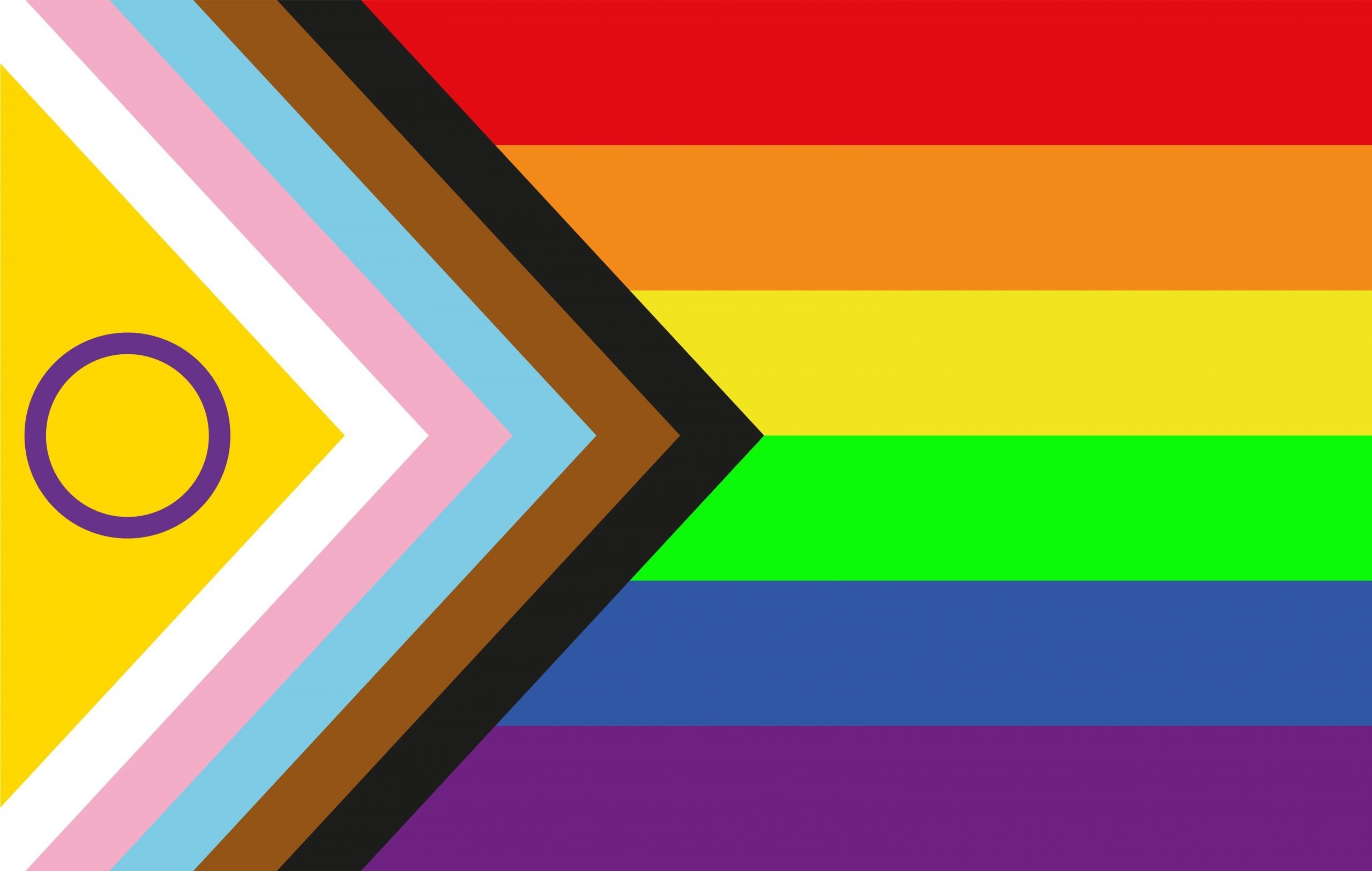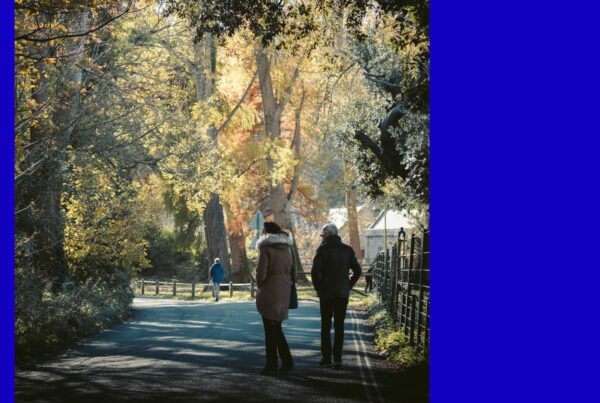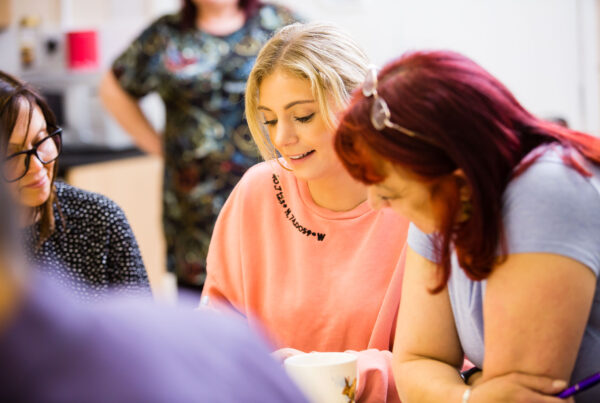Content warning: suicide, suicidal thoughts, discrimination
Back in February, we celebrated LGBT History Month.
The annual event is an opportunity to celebrate the history and progress of the LGBTQIA+ community. But as a mental health charity, we’re also interested in continuing to tackle the stigma and discrimination that still exists, to make sure everyone in our community has equal opportunity to access mental health support when it’s needed, whatever their identity and/or sexuality.
We’re also passionate about making sure our focus on LGBTQIA+ equality and equity isn’t only for one month out of the year.
We know that people who identify as LGBTQIA+ are two to three times more likely to experience a mental health difficulty than their straight and cis (those whose gender matches their biological sex at birth) peers.

The LGBT Intersex-inclusive progress flag is shown. To read more, please visit: Intersex Equality Rights UK (consortium.lgbt)
There are many reasons why this might be the case, and it’s important to note that LGBTQIA+ people might have mental health difficulties that relate to some other factor in their life – it may have nothing to do with their queer identity. Equally, they may never have experienced any mental health difficulties.
However, common issues the LGBTQIA+ community faces are: discrimination, homophobia/transphobia, bullying, social isolation, difficult experiences or trauma around coming out, healthcare inequalities and intersectional identities meaning that people are at an even higher risk of discrimination (for example, Queer People of Colour (QPOC) or Queer/Trans People of Colour (QTPOC))
These challenges put LGBTQIA+ people at higher risk of mental health problems such as depression, anxiety, self-harm, alcohol and drug abuse.
We aim to make all of our services open, accessible and welcoming to everyone in our community. In this way, our peer support or counselling services can help everyone (including our LGBTQIA+ community) manage their mental health. Creative arts sessions with Inkwell can give people an outlet, while Linking Leeds can help connect you to groups, clubs and services throughout the city to boost your overall wellbeing.
The LGBTQIA+ community is also at a higher risk of contemplating suicide, or trying to take their own life. For example, one in eight LGBTIQ+ people aged 18-24 had attempted to end their life, and almost half of trans people had thought about taking their life.*
Actual losses by suicide are more difficult to quantify because no national data is kept on LGBT+ identities upon death. However, higher instances of suicidal ideation (or thinking about suicide) mean that an increased risk of suicide is possible. Government acknowledged this heightened risk in the 2018 LGBT Action Plan, where it pledged to develop a plan “focussed on reducing suicides amongst the LGBT population”.
In our region, the West Yorkshire Health and Care Partnership collaborates with a number of organisations including voluntary, NHS and public health to reduce deaths by suicide in West Yorkshire. As an organisation, the West Yorkshire Health and Care Partnership is committed to tackling health inequalities, including those faced by the LGBTQIA+ community.
We are part of this effort at Leeds Mind through our West Yorkshire Suicide Bereavement Service. We also have the Leeds Suicide Bereavement Service.
Our suicide bereavement services operate under the notion that “postvention is prevention”, meaning that by supporting those who have been bereaved by suicide, we are helping to prevent further deaths. This is because losing someone to suicide is a known factor in increasing a person’s risk of taking their own life.
With that in mind, and as passionate LGBTQIA+ peers and allies, we see it as essential to ensure our suicide bereavement services are welcoming, friendly and accessible to everyone, including our LGBTQIA+ community.
If you have been bereaved by suicide – either recently or historically – then please do find out more about our suicide bereavement services. You can use the service regardless of your relationship to the person who died (for example, if they were friends and family or colleagues, or just an acquaintance). If you identify as LGBTQIA+ or the person who died by suicide did, we can work together to explore how this impacts on your grief and recovery.
Call us on 0113 305 5800 (Leeds Mind reception) or email sbs@leedsmind.org.uk. We’re open Monday – Thursday 9am – 5pm, and Friday 9am – 4:30pm.
Leeds Mind stands in solidarity with all LGBTIQ+ people who experience mental health problems, past and present. We want to make it clear to everyone involved with our charity (including the public, our service users, staff, volunteers and supporters) that ours is a safe space where everybody is welcome regardless of their gender identity or sexual orientation.
For more information about the LGBTIQ+ experience of mental health, please visit the Mind website.



